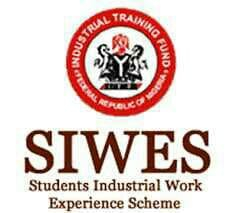Bodies Involved in SIWES Management and Roles in Nigeria
There are various bodies involved in the management of SIWES in Nigeria and each of them has its respective roles.
These bodies work seriously and together to ensure an effective administration of the training programme in Nigeria:
1. Federal Government of Nigeria
- To provide adequate funds to the I.T.F through the Federal Ministry of Trade and Investment for the scheme.
- To make it mandatory for all ministries, companies and parastatals, to offer places for the attachment of students under Decree No. 47 of 1971, as amended in 2011.
2. The Industrial Training Fund (I.T.F)
- To plan policies and guidelines on SIWES for distribution to all taking part bodies, institutions and companies involved in the scheme.
- Regularly organize orientation programmes for students prior to their attachment.
- Receive and process master and placement lists from the institutions through the supervising agencies, i.e. (N.U.C, N.B.T.E, and N.C.C.E).
- Disburse supervisor and students allowances by e-payment.
- Organize biennial SIWES national conference and review meetings.
- Provide insurance cover for students on attachment.
- Provide logistics and materials necessary for effective administration of the schemes, such documents as: I.T.F Form 8, S.C.A.F and D.E.P.F.
- Ensure the visitation of I.T.F officers to the supervising agencies, institutions, employers, and students on attachment.
- Provide information on companies for attachment and assist in the industrial placements of students.
- Continuously review and carryout research into the scheme operations.
- Vet and process student’s logbooks and forms.
READ ⇒ The Best Tertiary Institutions in Nigeria [Latest Ranking]
3. Supervising Agencies
The three (3) recognized supervising agencies are: (a) The National Universities Commission (b) National Board for Technical Education (c) National Commission for Colleges of Education.
Their general roles are:
- To ensure the establishment and accreditation of SIWES units in institutions under the jurisdiction.
- Direct to appoint full-time co-coordinators.
- Ensure adequate funding of the units in all institutions.
- Vet and approve master and placement lists of students from participating institutions and forward the same to I.T.F.
- Develop, monitor and review job-specifications in collaboration with the institutions towards the maintenance of national minimum academic standard for all programs approved for SIWES.
- Liaise with I.T.F and takes part in the biennial national conference and other relevant seminars, conferences, workshops and meetings.
- Research into the development of the programme in line with advances in technological development.
- Regularly review qualified courses in collaboration with other bodies.
- Collaborate with I.T.F to ensure the implementation of all federal government policies in the scheme.
4. The Institutions
This includes Nigerian Universities, Polytechnics, Colleges of Education, Colleges of Technology and Colleges of Agriculture all have specific industrial training roles to play in, which are to:
- Establish co-ordination units with a separate account adequately staffed and funded to ensure effective operation of the scheme.
- Appoint co-ordinators and supporting staffs.
- Register students and capture their bank details at the point of registration.
- Prepare and submit to the I.T.F through their supervising agencies, the master and placement lists.
- Apply job-specifications as prepared for all the accredited courses and award credit units under federal government minimum academic standard guidelines.
- Identify placement opportunities for student’s attachment with employers.
- Organize orientations courses in collaboration with the industrial training fund for their students.
- Submit all completed I.T.F forms to the nearest I.T.F area office.
5. Employers of Labour
These refer to the various firms, industries, companies, organizations, institutions etc. where students will carry out their internship.
Their roles are to:
- Collaborate with institutions of higher learning in preparing job-specification for approved courses.
- Accept training students as stipulated in I.T.F Decree No. 47 as amended (2011).
- Take part fully in the assessment of programmes and students by completing the instruments, e.g. I.T.F Form 8, logbooks.
- Allow training students to have access to their facilities.
- Appoint an industry-based supervisor for students on attachment.
6. Industrial Training Students
- To register for the programme and submit at the point of registration, their bank account details to their school coordinators.
- Attend orientation programmes before going on attachment.
- To be obedient to constituted authorities and adhere strictly to all rules and regulations of the organization where they are attached.
- Be regular and punctual at respective places of attachment.
- Avoid change of attachment, except in special circumstances which must be determined and approved by their institutions, supervisor, employer and/or I.T.F.
- Complete the Student’s Commencement Attachment Form (S.C.A.F) and get it endorsed by the employers for onward submission to I.T.F.
- Record all industrial training activities and other assignments in logbook and complete I.T.F forms to ensure proper assessment.
- Be diligent, honest and take pride in protecting an employer’s properties throughout the attachment period.
Having known all these important tips, if you’re now ready to learn how you could easily secure possible placement for your training this year, then read the post below.
READ ⇒ SIWES Placement: How to Apply and Secure Your I.T in Nigeria







Hello Sir, Where does a person that will do his IT at ITF headquarter suppose to submit the forms given to him?
Is it the same HQ or Area office of ITP?
Ask your office.
Hi sir am a marketing student looking for where to do siwes in lagos
Are the students liable to pay for the transportation of their supervisors, to their various placement?
No.